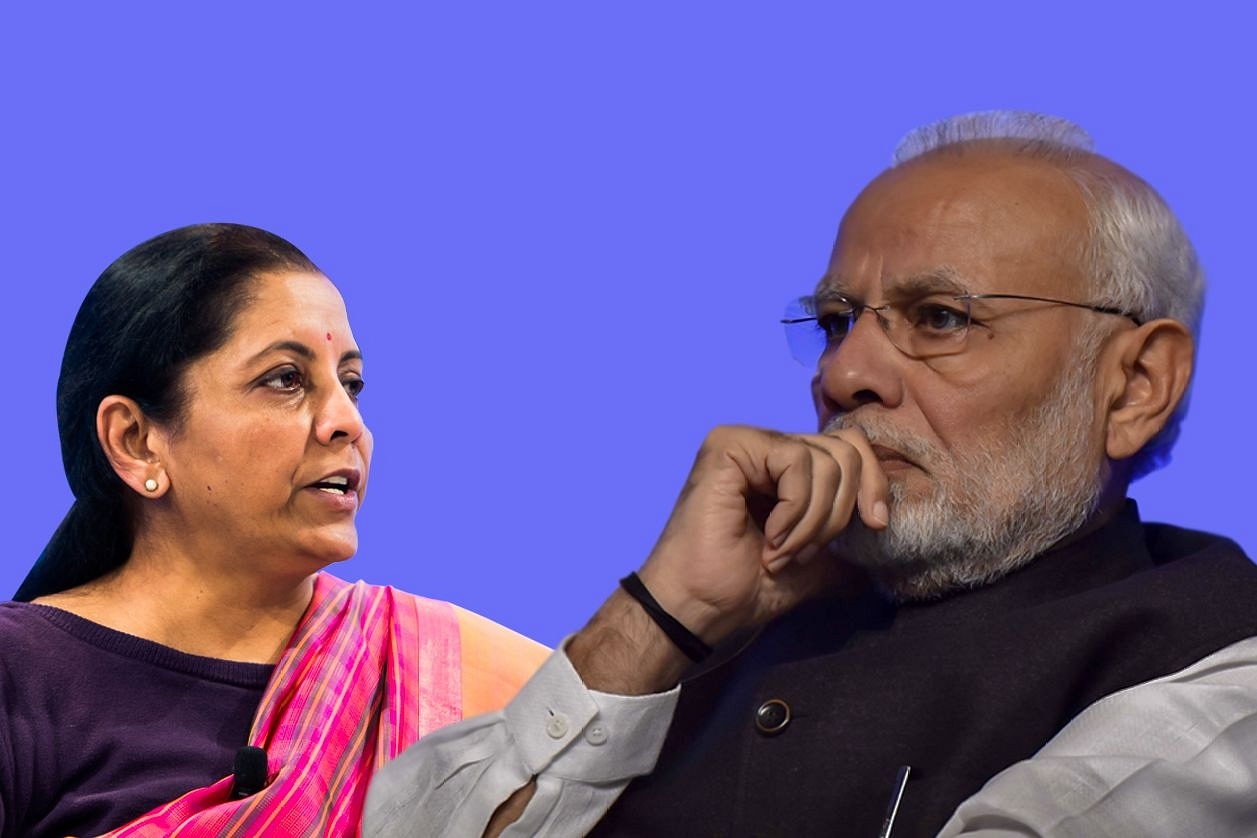Economy
Not All Tax Cuts Are Reform: Dividend Tax Can Go, STT Can Be Cut, But LTCG Must Stay
- While any elimination of LTCG or DDT or STT will please the stock markets, not all of them are equally worthy of the axe.
- Not all tax cuts constitute tax reform. The Modi government should keep this in mind.

Finance Minister Nirmala Sitharaman and Prime Minister Narendra Modi.
The stock markets have been having a ball, driven by speculative reports on coming changes in dividend distribution tax and short- and long-term capital gains taxes. The Bombay Stock Exchange Sensex has conquered Mt 40k, and the NSE Nifty is edging up towards Peak 12k.
The mood in the Narendra Modi government is clearly in favour of making huge moves on tax reform and filling the resultant revenue gaps through more aggressive privatisation, with Bharat Petroleum, Shipping Corporation of India and Concor leading the list.
While this is good news, even great news, the government should understand that not all tax cuts constitute real reform. Among the moves being discussed are the possible abolition of the dividend distribution tax (DDT), reduction in or abolition of long-term capital gains (LTCG) tax, currently levied at 10 per cent for gains above Rs 1 lakh. The securities transaction tax (STT) is also being reviewed.
A simple caveat is in order here. While any elimination of LTCG or DDT or STT will please the stock markets, not all of them are equally worthy of the axe.
The abolition of DDT is a good move, since currently the tax is deducted at source by companies, which is iniquitous. In effect, the tax is cut even for those receiving meagre dividends and who are in the tax-free or low tax brackets. On the other hand, giving the rich tax-free dividends is hardly the right thing to do. It is best to collect dividend taxes in the hands of the receiver rather than at source from the companies paying them out. Leaving more retained profits in the hands of companies will help them invest more – which is what the economy needs – while taxing the rich who receive higher dividends. DDT has been too favourable to the rich at the cost of the rest.
The abolition of STT is fine, for all it does is create friction in trading. However, there is nothing to commend the abolition beyond this limited goal. On the other hand, it could boost speculative trading volumes, leading to easier build-up of stock market bubbles. Also, the revenues expected from STT in fiscal 2019-20 are not an inconsequential Rs 12,800 crore. It is not worth sacrificing this revenue merely to reduce friction in trading, when it is far from clear that this friction is a bad thing for the markets. A reduction rather than a complete abolition of STT may be what the doctor ordered.
The utmost caution, however, needs to be exercised on the abolition of long-term capital gains tax (LTCG). This tax is needed to ensure that all incomes are subject to tax, and not just wage incomes. If salaries are taxable, earnings from capital investment should also be, or else the tendency will be to replace labour with lower- or zero-taxed capital. No better way to kill jobs than to give capital-based incomes a tax-free pass.
Also, if bank interest – another form of capital related income – can be taxed, what is so special about leaving LTCG untaxed? The only reform needed here is to allow inflation indexation for LTCG, so that only real gains are taxed. There is no case whatsoever for the wholesale abolition of LTCG, leave alone STCG.
Not all tax cuts constitute tax reform. The Modi government should keep this in mind.
Support Swarajya's 50 Ground Reports Project & Sponsor A Story
Every general election Swarajya does a 50 ground reports project.
Aimed only at serious readers and those who appreciate the nuances of political undercurrents, the project provides a sense of India's electoral landscape. As you know, these reports are produced after considerable investment of travel, time and effort on the ground.
This time too we've kicked off the project in style and have covered over 30 constituencies already. If you're someone who appreciates such work and have enjoyed our coverage please consider sponsoring a ground report for just Rs 2999 to Rs 19,999 - it goes a long way in helping us produce more quality reportage.
You can also back this project by becoming a subscriber for as little as Rs 999 - so do click on this links and choose a plan that suits you and back us.
Click below to contribute.
Latest